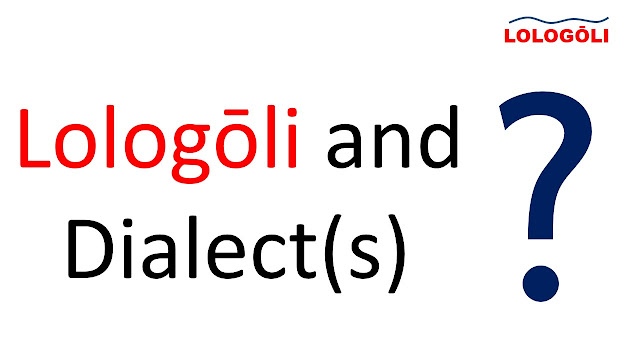Featured
- Get link
- X
- Other Apps
Identifying Lologooli Dialects
Some people argue that North, Central and South parts of Maragoli have language differences. It is true there are a couple of vocabularies and pronunciations limited to either of the places but if it informs a dialect or dialects it is all for further studies.
The most common idea of a dialect is a lesser version of a language, peculiar to a region or social group. Lologōli speaking among the elders is more fluent. The youths at now mix with Kiswahili and English.
Not everybody who speaks Lologōli speaks the same way. And not to everyone you speak to you'll speak the same way. If so, would all these (idiolects including) amount to dialects? For those who live around neighboring communities like Tiriki, Idakho and Vanyore, their phonetics tend to borrow externally. But this is a 'conscious' practice and speakers can 'know' their limitations.
Possible systematic language differences today in Lologōli could be stemming from generational than geographical causes. Whereas Valogōli from Evologōli and beyond associate even more today, they create a common understanding of the day, a shift from a past one.
Hardly would a speaker challenge another right at talking that they are speaking a lesser version of a language. Parents do to children but adults would prefer not to. This compromise of communication respect does go on and the results is an individual who least observes underlying language aspects.
Use of short forms is common that a person who articulates long word forms appears to be speaking 'as of old'. The traditional use of letter 'L' for soft sound 'r' is in claim that Lologōli has no 'R' trill is presently unknown to a majority of Logōli speakers because they never learnt the language. Hence dictated by Kiswahili and English articulations.
It is a huge task to 'tell people how to speak' good Lologōli. Not when too little is being done to research and as well as teach a standard to gauge from. At household level the media is paramount with languages and environments away from the immediate. And the worry is not a resultant lesser dialect of Lologōli but a complete loss of it all.
...
- Get link
- X
- Other Apps


Comments
Post a Comment